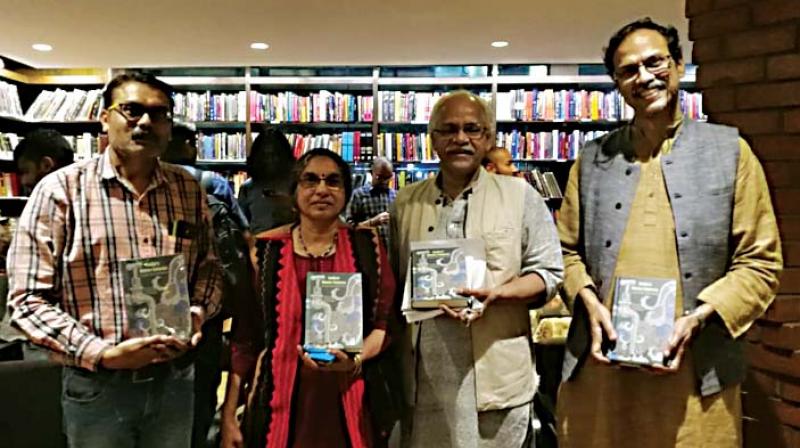Bengaluru: Borewells, eucalyptus sucking Arkavathy river dry, say research scholars
More than 50 per cent of the irrigation in Karnataka takes place through groundwater.

Bengaluru: “One needs permission from the tribunal to construct a dam, but nor for digging thousands of borewells. Planting of eucalyptus and pumping of ground water are the major reasons for the dying of Arkavathy river,” said Dr Sharachchandra Lele, a research scholars at ATREE, here on Saturday.
He has co-authored with Veena Srinivasan, who is an ATREE research scholar too, a chapter on “Managing river basins: Re-examining the biophysical basis”, in the book, India's Water Futures, Emerging Ideas and Pathways.
Dr Lele said, "Farmers refuse to accept that pumping affects the flow of water. In the early 1950s, water provisioning and not water management was the goal. In 1970s there was a borewell revolution. More than 50% of the irrigation in Karnataka takes place through groundwater."
Mr K.J. Jose, one of the editors of the book, said, “Confronting the reality of current water management strategies, this volume discusses the state of Indian water sector to uncover solutions that can address the imminent water crises. It analyses the growing water insecurity, increase in demand, inefficiency in water use and growing inequalities in accessing clean water.”
The book is an ode to Prof Ramaswamy R. Iyer, a policymaker and former Secretary of Water Resources, who drafted the first National Water Policy in 1987. It claims to go beyond critiquing the water sector, and sheds light on water footprint in agricultural, industrial and urban use, pressures on river basin management, depleting groundwater resources, patterns of droughts and floods, watershed-based development and waste-water and sanitation management. It examines interstate water conflicts, lack of participatory governance mechanisms and suggests an alternative framework for water regulation and conflict transformation.

